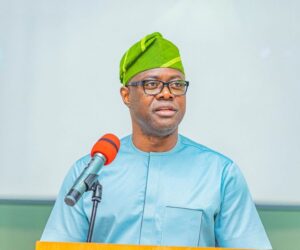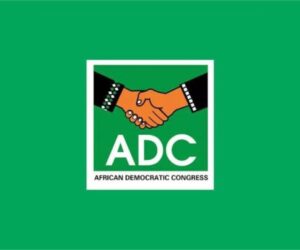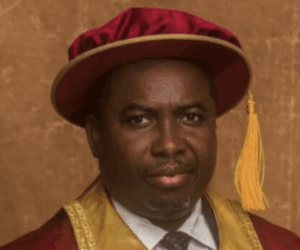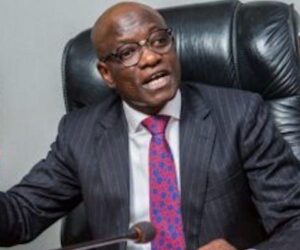Lawmakers from notable African countries, Monday, converged on Abuja to collaborate on ways of blocking yearly leakages of $587 billion.
To this end, the National Assembly expressed its commitment to establish the National Assembly Budget and Research Office (NABRO) as an independent, non-partisan budget office for evidence-based budgeting, comparable to the renowned U.S. Congressional Budget Office (CBO).
Immediate former president African Development Bank (AfDB), Dr Akinwumi Adesina, had in a recent interview with Bloomberg, cautioned that Africa was losing more than $580 billion every year through corruption and illicit capital outflows.
By the AfDB estimates, Africa, on daily basis, loses about $1.6 billion to financial leakages, including illicit financial flows, profit-shifting by multinationals, and corruption among others.
It further shows annual losses of $90billion from illicit flows, $275billion through profit-shifting, and $148billion siphoned off due to corruption.
Adesina had said: “It doesn’t matter how much water you pour into a bucket if the bucket is leaking. If you’re able to reduce the leakages to illicit capital, corruption and all of these things, Africa will be able to keep a lot of these resources and meet the amount of infrastructure it needs.”
…Parliamentarians’ move
Speaking at the opening session of the 8th Conference of African Network of Parliamentary Budget Offices held at the Abuja Continental Hotel, Abuja, Speaker House of Representatives Tajudeen Abbas said there was no better time to address the myriad of challenges facing the continent than now.
He said: “One of the critical challenges is revenue leakage through corruption, illicit financial flows, and inefficiency which must be tackled through better ways of budget scrutiny .
“According to the African Development Bank, Africa loses over $587 billion annually to capital flight – money that flees the continent through corruption, illicit trade, mispricing, and profit shifting by multinational corporations, among other channels.
“Corruption alone is estimated to drain about $148 billion from Africa annually, and other illicit financial flows (such as trade malpractices, smuggling, among others) siphon away additional tens of billions.
“This is money that should be used to build roads in Lagos, equip hospitals in Nairobi, or improve schools in Accra, but instead it vanishes.”
He posited that Nigeria presents a cautionary example of both the challenge and urgency of oversight, saying: “In our public procurement processes, which make up a significant part of government spending, Nigeria loses an estimated $18 billion each year to financial crimes, roughly 3.8% of our GDP. These leaks could fund numerous social programmes many times over.
“There is a need to stop such leakages so that budgets can lead to better outcomes for citizens. That is why we have been increasing oversight hearings, audit inquiries, and strengthening anti-corruption laws. Oversight is vital to ensure that limited resources are used for the public good.
“Institutional capacity constraints also pose a challenge. Many African parliaments have historically lacked independent analytical resources to effectively scrutinise budgets and expenditures.
“Without access to high-quality fiscal data and economic analysis, legislators may struggle to hold the executive to account on complex issues of macroeconomic policy, debt sustainability, or public investment efficiency.
“This gap is exactly what Parliamentary Budget Offices are meant to fill,” he stressed.
Speaker Abbas further explained that “in the face of the challenges, we are responding with reforms to strengthen the legislative “power of the purse” and ensure accountability.”
In doing that, he said one of the most significant advancements in Nigeria is the effort to establish the National Assembly Budget and Research Office (NABRO) as an independent, non-partisan budget office for our legislature.
“Let me assure this audience that the National Assembly is fully committed to NABRO’s realisation, full funding, and independence.
“We envisage NABRO as a catalyst for evidence-based budgeting, comparable to the renowned U.S. Congressional Budget Office (CBO). Beyond NABRO, the Nigerian legislature is advancing a broader fiscal governance agenda.
“We are revising our Fiscal Responsibility and finance laws to enhance budgetary discipline and transparency. We are empowering our Public Accounts Committees to take decisive action on audit findings”, he added.
…NASS’ CNA speaks
Earlier in his remarks at the conference attended by representatives from 16 countries, the Clerk to the National Assembly (CNA), Barrister Kamoru Ogunlana, described it as a critical platform for peer learning, capacity building meant for promoting the institutionalisation of evidence-based public finance management.
“I encourage us all to use this Conference not only as a platform for exchange, but as a springboard for innovation and renewed commitment to fiscal representability,” he said.
Some of the participating member states at the conference are Nigeria, Ghana, Kenya, Uganda, South Africa, Tanzania, Namibia, Zimbabwe, Malawi, Mozambique, Liberia, Gambia, Sierra Leone and Cape Verde etc.








